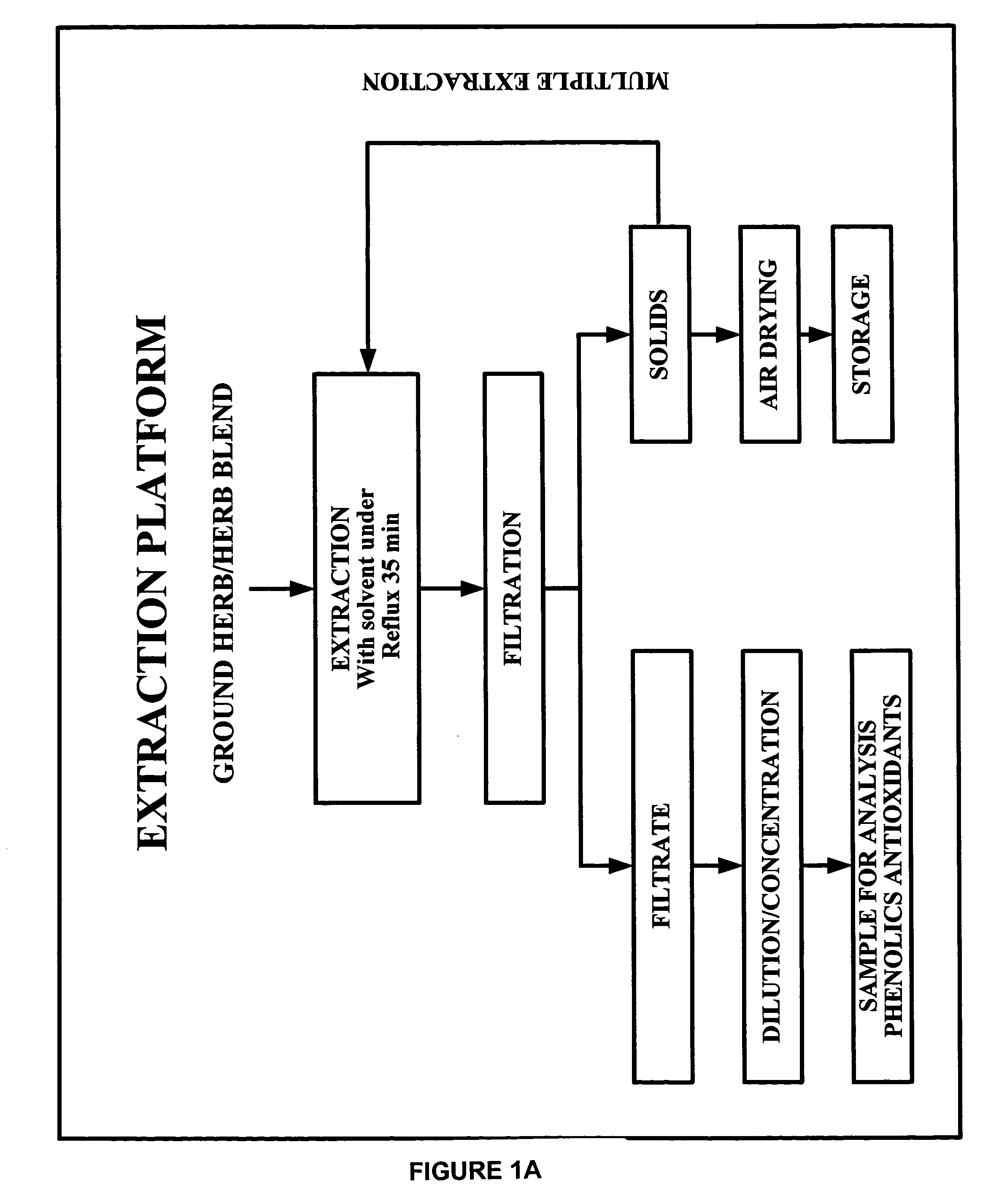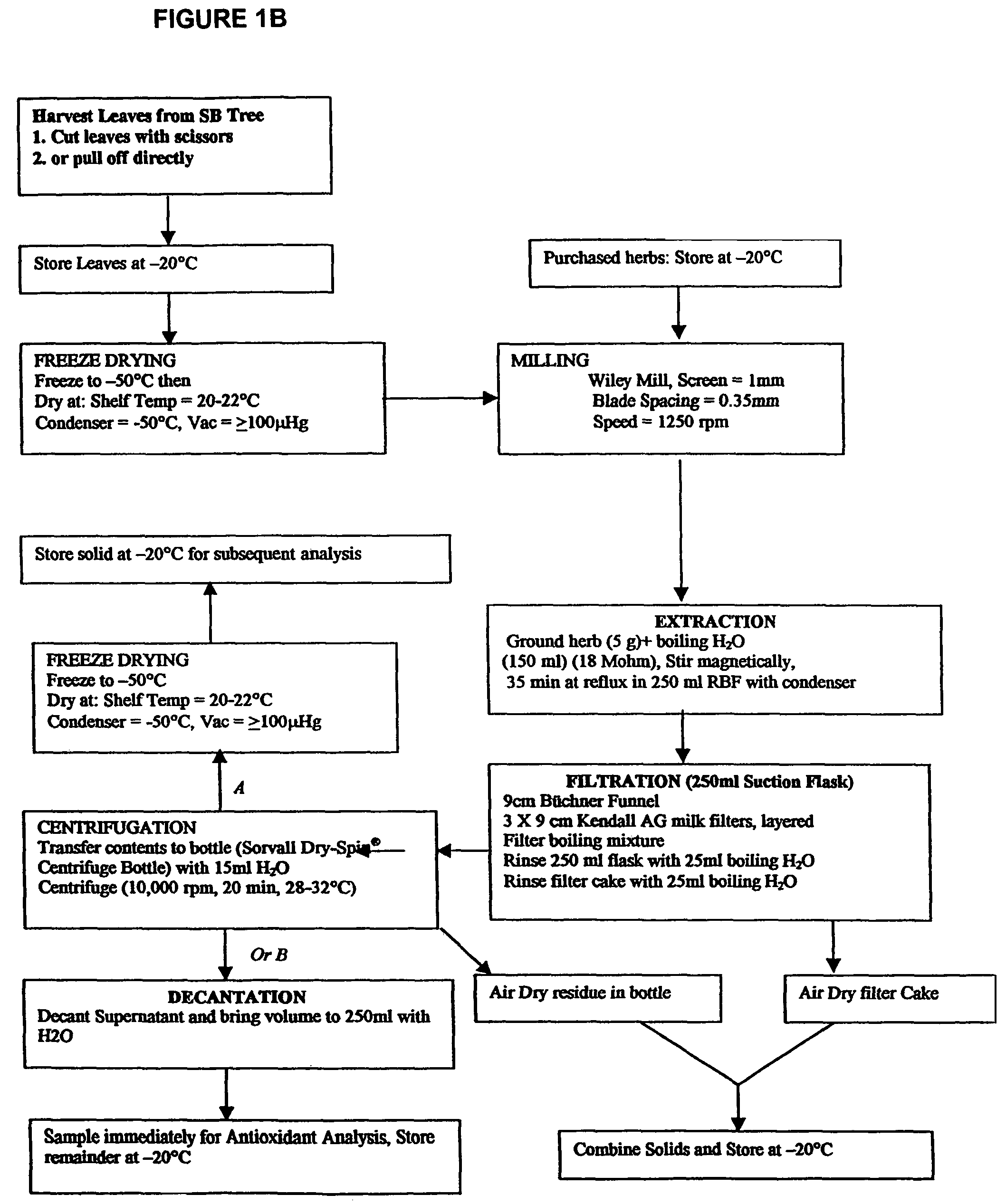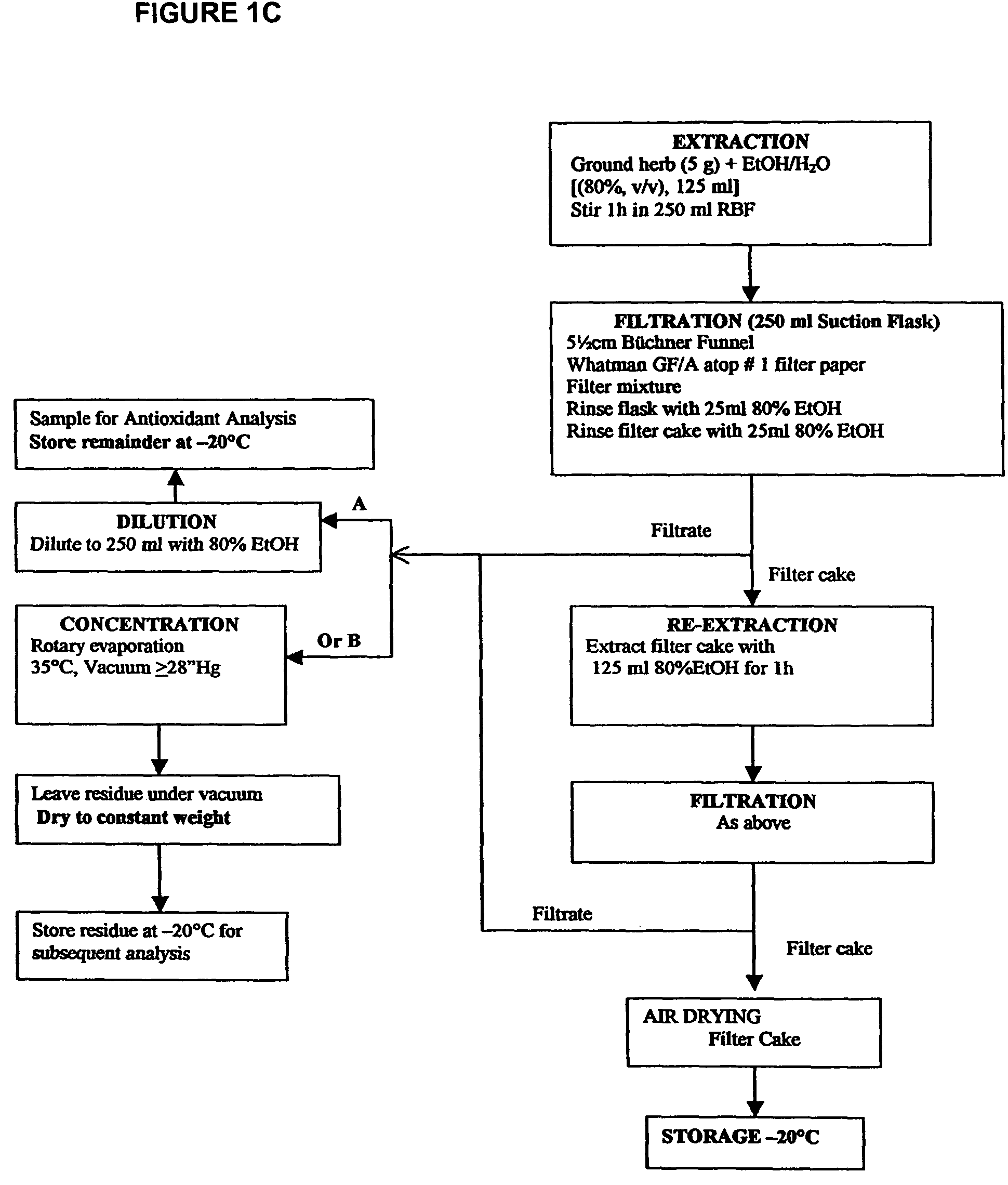Compositions of botanical extracts for cancer therapy
a technology of botanical extracts and cancer therapy, applied in the direction of biocide, drug composition, immunological disorders, etc., can solve the problems of high cost, high toxicity, and one individual at risk of cancer, and achieve the effects of reducing the risk of cancer
- Summary
- Abstract
- Description
- Claims
- Application Information
AI Technical Summary
Benefits of technology
Problems solved by technology
Method used
Image
Examples
example 1
Methods for Preparation of Botanical Extracts
[0115]The compositions of the present invention may be administered as dried botanicals. Botanical preparations contain phytochemicals some of which are soluble in aqueous media while others are relatively more soluble in organic (alcohol, lipid) media. Different extraction methods were used and tested for the ability to extract effective ingredients from the botanicals. Extraction methods include: Hot Water extraction; Organic (lipid fraction) extraction; Organic (aqueous fraction) extraction; and Ethanol Extraction.
[0116]Products are prepared from botanicals using different solvents by the general extraction platform shown in FIG. 1A. In general, the botanicals are pre-screened for uniform size and quality by visual and other inspection means. The raw botanical material is extracted with the desired solvent. Preferably, the extraction process is carried out twice for each batch. The liquid extracts are evaporated to dryness. If needed, ...
example 2
[0118]A large range of concentrations (in mg / ml) of individual botanical extracts of Ganoderma lucidum, Scutellaria barbata, Pq (Panax quinquefolium) and Salvia miltiorrhiza required for the inhibition of cancer cell proliferation in A549 human lung cancer cells in tissue culture were tested for a duration of 72 h. The increase in cell number in the presence and absence of extract was measured by Sulforhodamine B assay. IC50 values for inhibition of cell growth were obtained by measuring the amount of total cell protein with the sulforhodamine B assay as described by Skehan et al., New Colorimetric Cytotoxicity Assay for Anticancer-drug Screening,” J. Natl. Cancer Inst., 82:1107-1112 (1990). MCF-7 cells were grown in RPMI 1640 medium containing 17% fetal calf serum, 12 μg / mL gentamicin sulfate and 2 mM glutamine at 37° in 5% CO2. Confluent cells were trypsinized, diluted 40-fold, and seeded into 96-well microtiter plates. After 24 hours of growth without drug, medium with varying co...
example 3
Cox-2 Inhibition by Extracts
[0121]Cyclooxygenase (Cox) is an enzyme naturally present in our body. Cox-2 is an enzyme that is necessary for inducing pain. Nonsteroidal anti-inflammatory drugs (NSAIDs) are widely used in treating pain and the signs and symptoms of arthritis because of their analgesic and anti-inflammatory activity. It is accepted that common NSAIDs work by blocking the activity of cyclooxygenase (COX), also known as prostaglandin G / H synthase (PGHS), the enzyme that converts arachidonic acid into prostanoids. Recently, two forms of COX were identified, a constitutive isoform (COX-1) and an inducible isoform (COX-2) of which expression is upregulated at sites of inflammation (Vane, J. R.; Mitchell, J. A.; Appleton, I.; Tomlinson, A.; Bishop-Bailey, D.; Croxtoll, J.; Willoughby, D. A. Proc. Natnl. Acad. Sci. USA, 1994, 91, 2046). COX-1 is thought to play a physiological role and to be responsible for gastrointestinal and renal protection. On the other hand, COX-2 appea...
PUM
| Property | Measurement | Unit |
|---|---|---|
| volume | aaaaa | aaaaa |
| volume | aaaaa | aaaaa |
| volume | aaaaa | aaaaa |
Abstract
Description
Claims
Application Information
 Login to View More
Login to View More - R&D
- Intellectual Property
- Life Sciences
- Materials
- Tech Scout
- Unparalleled Data Quality
- Higher Quality Content
- 60% Fewer Hallucinations
Browse by: Latest US Patents, China's latest patents, Technical Efficacy Thesaurus, Application Domain, Technology Topic, Popular Technical Reports.
© 2025 PatSnap. All rights reserved.Legal|Privacy policy|Modern Slavery Act Transparency Statement|Sitemap|About US| Contact US: help@patsnap.com



